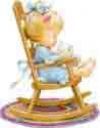|
ESL Forum:
Techniques and methods
in Language Teaching
Games, activities
and teaching ideas
Grammar and
Linguistics
Teaching material
Concerning
worksheets
Concerning
powerpoints
Concerning online
exercises
Make suggestions,
report errors
Ask for help
Message board
|
ESL forum >
Ask for help > help for correcting students
help for correcting students
|

melike_gizem

|
help for correcting students
|
|
hi!
ı need some articles about differences between mistake and error in elt. and also ı need some information about correcting learners.
thanks in advance:) |
22 Feb 2009
|
|
|
|

libertybelle

|
|
They are synonyms for the same thing.
|
22 Feb 2009
|
|
|

demeuter

|
|
It �s depends. Is there a human action or not.
Errors occur, mistakes are made
mistakes involve human actions, errors can simply happen
machines have errors, humans make mistakes
Karina
|
22 Feb 2009
|
|
|

brookee

|
|
Hi melike88~~
In common or casual reference, error and mistake are synonymous, but in linguistic or language acquisition terminology, there is a distinction between a mistake and an error.
A mistake is a performance error or what is called in English a "slip up"--the person knows the correct word or form, but fails to use it for whatever reason. All people make mistakes, including native and non-native speakers of a language.
An error is different. Errors are noticeable deviations from the standard language used by a native speaker. Errors may occur repeatedly and may not be recognized by the learner as an error. Errors usually come from inter-/intra- lingual transfer problems.
The line between an error and a mistake is not always clear--even for the teacher. But one easy way I look at it myself is that a learner may be able to catch, note and correct his own mistake, but will not be able to correct his own error, as an error comes from a lack or competence in a certain area.
Despite all this, teachers should communicate to learners that making errors and mistakes are natural and to be expected in the language learning process. Help students with mistakes and errors by providing them with meaningful feedback, good modeling, high expectations and chances to practice new skills.
~~Brooke |
22 Feb 2009
|
|
|

Olindalima ( F )

|
Hi, brookee
this is the first time I meet you here, I think, but must say you one thing:
"A BIG, BIG THANK YOU " for the short and clear explanation about the difference between error and mistake.
One, we can �t correct, because it is an error we commit, the other we can correct, we made it for any unimportant reason, but we know to do it the right way.
I just copied your post and pasted it on a word sheet, and it is going right to my "special theory problems " folder.
Thanks
|
22 Feb 2009
|
|
|

brookee

|
|
@ Olindalima~~
De nada...You �re welcome... (big smile).
(...and I �m very envious of your organizational skills...you have a "special theory problems" folder!! Wow!! I wish I could be so methodical in organizing my documents and pieces of work in such a sensible and time-saving way. Kudos to you!)
~~Brooke |
22 Feb 2009
|
|
|

melike_gizem

|
|
thanks lot for your replies:) what about correcting learners? should teachers correct students? how and why? |
23 Feb 2009
|
|
|